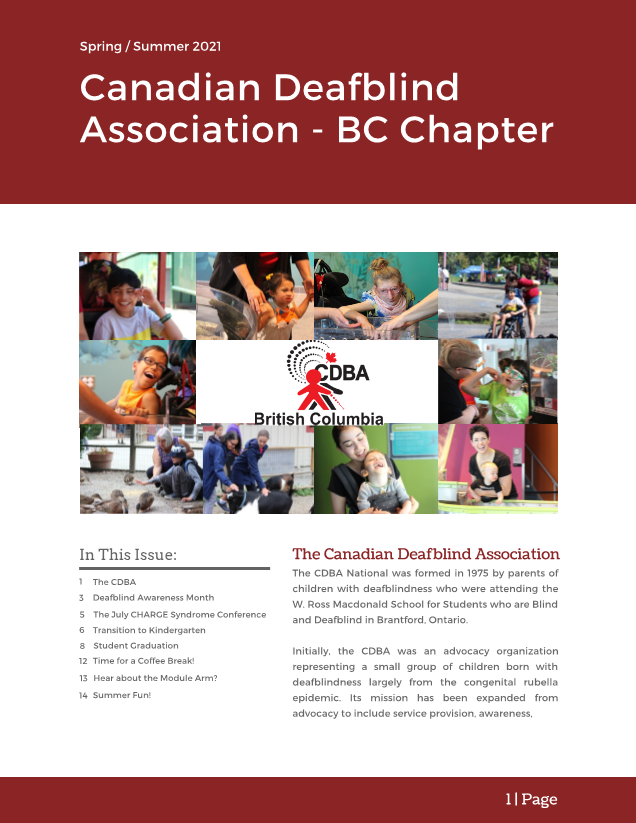Sign up for our newsletter
Twice a year, Spring and Fall, we send out a newsletter to share news of happenings and information in our organization and within the world of deafblindness.

Call: (604) 528-6170 | Email: theresa@cdbabc.ca
1. Total and unconditional belief in and respect for an individual with deafblindness.
2. Total and unconditional belief in the value of Intervention for all individuals with deafblindness.
3. The amount of Intervention and the form it will take must be individualized to meet the specific needs and desires of each individual with deafblindness.
4. Individuals with deafblindness have a right to access information in their modes of communication.
5. Intervention is “Doing With, Not For.”
6. No assumptions should be made regarding the abilities of an individual with deafblindness.
7. Never underestimate the importance of the relationship between the Intervenor and the individual with deafblindness.
8. The process of Intervention must always provide the individual with deafblindness with the information required for anticipation, motivation, communication, and confirmation.
9. Every experience is an opportunity to provide information and encourage interaction.
10. The focus of Intervention should always be on the needs of the individual with deafblindness.
11. Intervention is recognized as a process that requires Intervenors to have specific skills, knowledge, and experiences in order to be effective in providing the best possible opportunity for people with deafblindness to gather information, process it and develop communication, concepts and skills
